News feed
MOL Takes Strategic Role in BME’s Renewal
2025. 06. 23.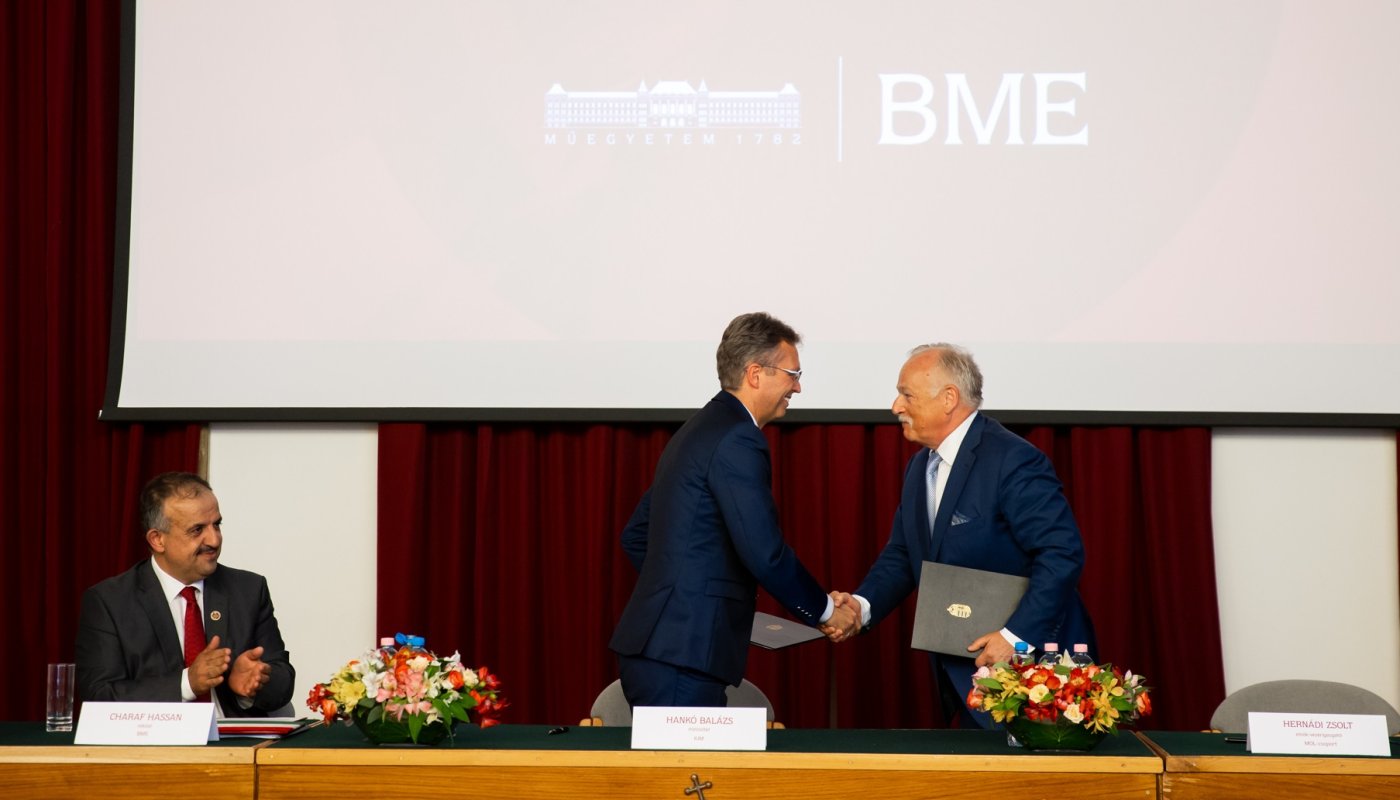
MOL Group will participate as a strategic investor in the future operation of Budapest University of Technology and Economics (BME). Hungary’s most prestigious technical higher education institution is transitioning to a new, privately maintained university model.
The agreement between MOL Group and the Hungarian state was signed on 23 June by Balázs Hankó, minister of Culture and Innovation, and Zsolt Hernádi, chairman and CEO of MOL Group. The signing took place at an event in BME’s Ceremony Hall, attended by members of the BME Senate, university leadership, and representatives from the Ministry of Culture and Innovation and MOL Group.
The goal of BME’s renewal is to establish a long-term, sustainable, and competitive organisational and financing structure for Hungary’s leading institution in engineering, IT, and natural sciences education, as well as research and development. At the same time, it aims to strengthen MOL's role in advancing Hungary’s innovation ecosystem.
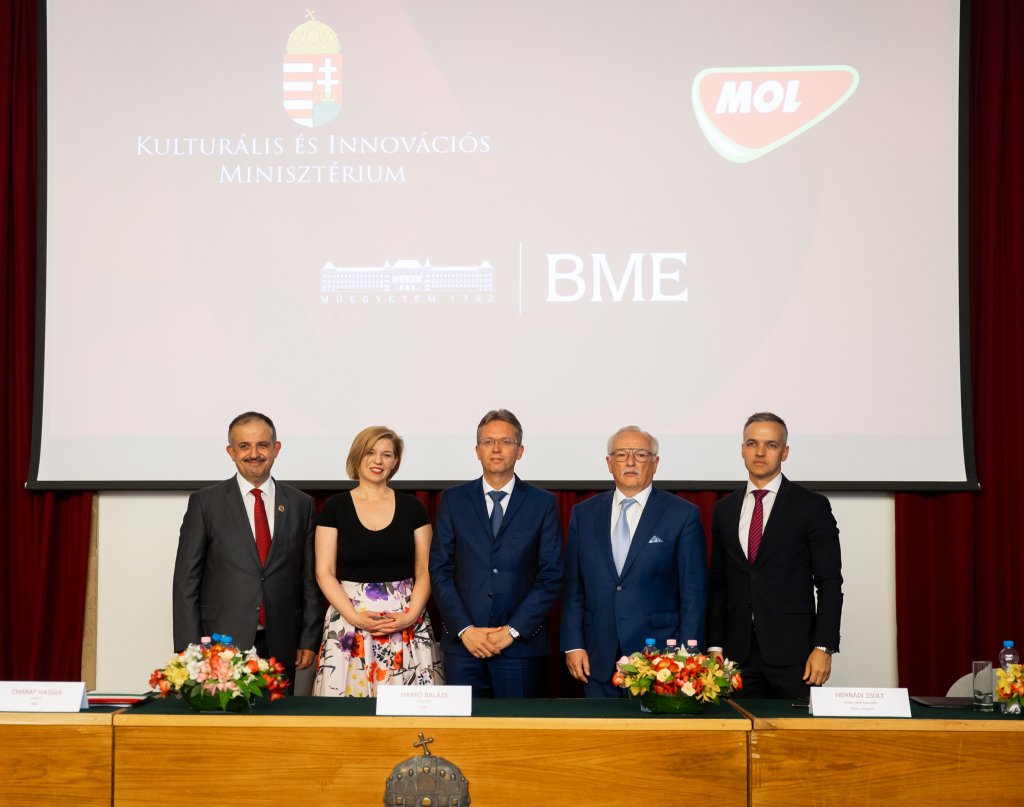
Charaf Hassan, Rector, Veronika Varga-Bajusz, Secretary of State, Hankó Balázs, Minister, Zsolt Hernádi, CEO and Péter Ratatics, a Executive Vice President
According to the agreement signed on 23 June, MOL will purchase the shares of BME Fenntartó Zrt., the entity responsible for maintaining BME, for HUF 50 billion. MOL will acquire the company’s ordinary shares, while the state will retain strategic oversight through a so-called class B preference share. A class C preference share, held by the university, ensures its involvement in key decisions that impact BME’s future.
| BME has over 20,000 students across its eight faculties, including a significant number of international students. The university attracts more than 12,000 new applicants each year and plays a key role in European research programmes. Since the launch of the Horizon Europe framework in 2021, BME has submitted 54 successful applications, securing more than 17 million euros in funding—making it the leading Hungarian institution in both participation and total funding received. |
"Budapest University of Technology and Economics is not only part of our past—it is also our future. As the citadel of Hungarian engineering knowledge, it now stands on the threshold of a new era, where the university and industry form a strategic alliance. MOL’s 50-billion-forint investment sends a clear message: strong cooperation between universities and the economy is the key to progress. It’s important to highlight that this alliance is the result of the university’s autonomous decision, supported by 85% of BME’s Senate. Together, MOL and BME are giving the university renewed vision and momentum—so that it can fullfil its mission and become one of Europe’s top 100 universities and one of the world’s leading technical institutions in the coming years,” said Balázs Hankó, minister of culture and innovation.
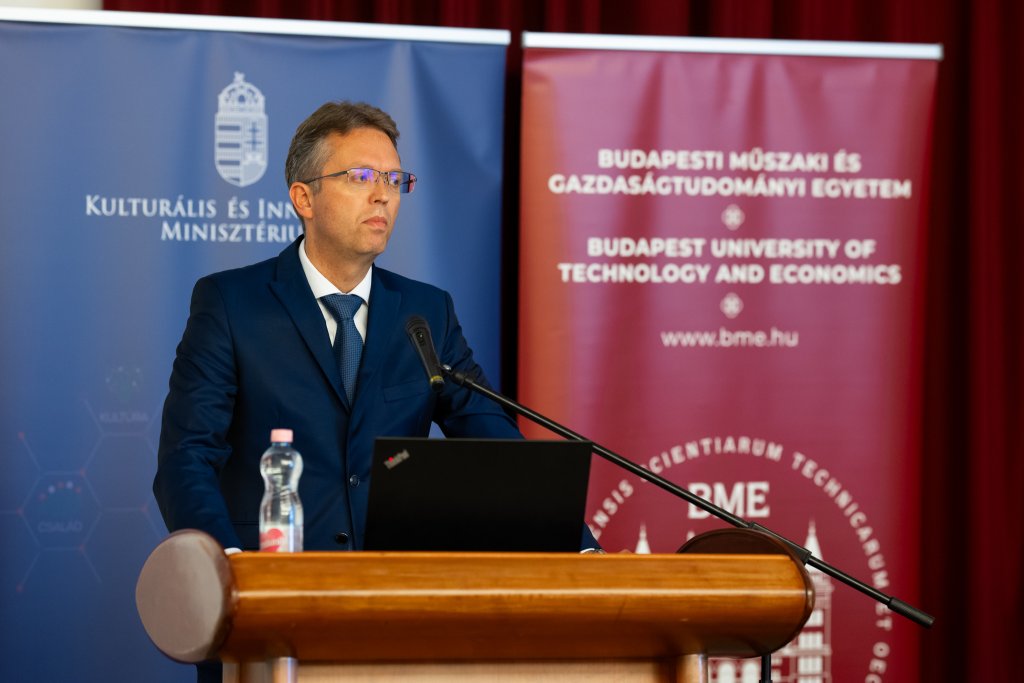
“Strengthening cooperation with higher education—particularly in engineering—is a key element of MOL’s long-term strategy. Our partnership with BME will enable us to train engineers with up-to-date knowledge and carry out real-world industrial research. This step is not only crucial for MOL’s future, but it may also open new horizons for other industrial players,” said Zsolt Hernádi, chairman and CEO of MOL Group.
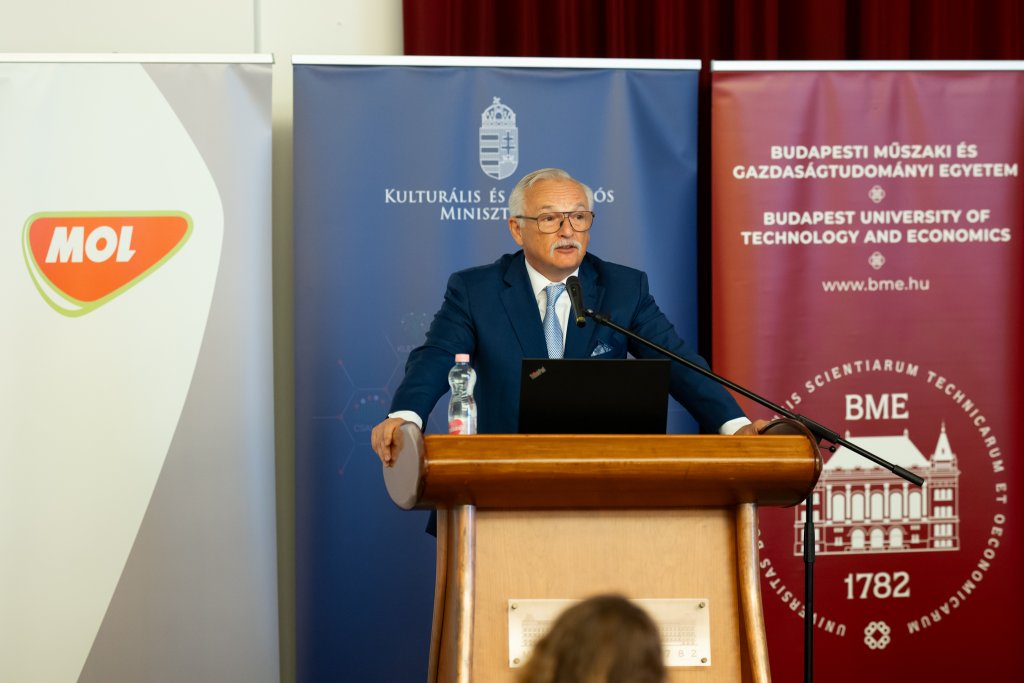
A unique structure in international higher education—specifically tailored to the exceptional opportunities of BME—has been created, thanks to the cooperation between the government and MOL in placing the university’s development on a new footing, aligned with European Union regulations. Now, it is up to us—the citizens of BME—to determine the kind of university we build and how we make the most of this extraordinary opportunity. Our vision is clear: to strengthen our academic and research excellence, to strive for a leading position among technical universities in international rankings, and to become the driving force of Hungary’s innovation ecosystem,” said Hassan Charaf, rector of BME, highlighting the key aspects of the university’s renewal.
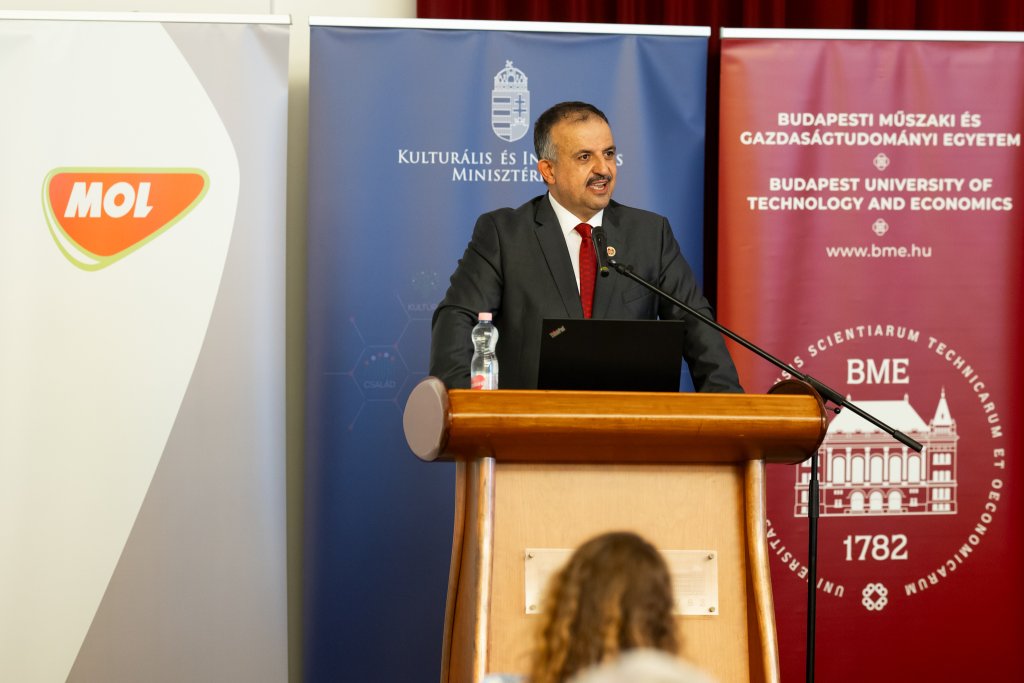
BME Fenntartó Zrt. will be managed by a board of directors, which will include the rector of BME. Additional members, nominated by MOL, will be selected from among recognised professionals whose experience in business, industry, and higher education enables them to represent the university’s strategic interests. This governance model builds on cooperation between the public and private sectors, while professional and academic matters will continue to be decided by the university community
MOL aims to create a research, development, and innovation platform together with BME, capable of launching large-scale, strategically important industrial projects—rooted in Hungary, but meeting European standards. Through this role, MOL is building a knowledge base that supports the expansion of its R&D and innovation activities, while enabling their direct integration into its business operations. The new governance model allows MOL to take part in strategic decision-making, while preserving the university’s professional autonomy—academic matters remain solely the responsibility of the Senate and the university community.
The BME Senate supported the transformation with a two-thirds majority, meaning the change is being implemented based on the decision and authorisation of the university community. The development of the new maintenance model was preceded by several months of consultation with university leadership, academic staff, and students.
Rector's Office, Communications Directorate
